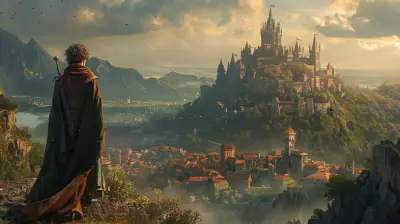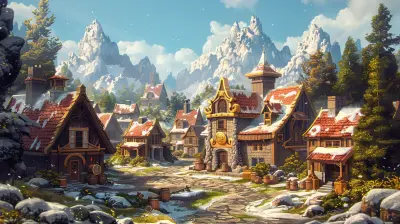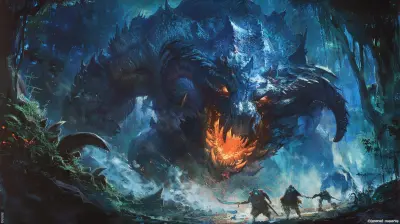How Horror Games Have Reinvented the Zombie Apocalypse
18 October 2025
Zombie apocalypse games have been a cornerstone of gaming for decades. They’ve shuffled, groaned, and shambled their way into nearly every console generation, breathing new “unlife” into the survival horror genre. Let’s be honest, though—there was a time when the undead felt a little stale, right? I mean, how many times can we battle through the same rehashed storylines of outbreaks, rescue missions, and safe-house scavenging before it all just feels... dead?
But here we are, years later, and zombie apocalypse games are thriving again. Why? Because developers decided to shake things up and reinvent what it means to face the undead. Horror games have brought new life (or death?) to the zombie apocalypse by blending unexpected twists, emotional storytelling, innovative mechanics, and unforgettable atmospheres. So grab your virtual baseball bat and let’s dive into how this genre has crawled its way back to the top.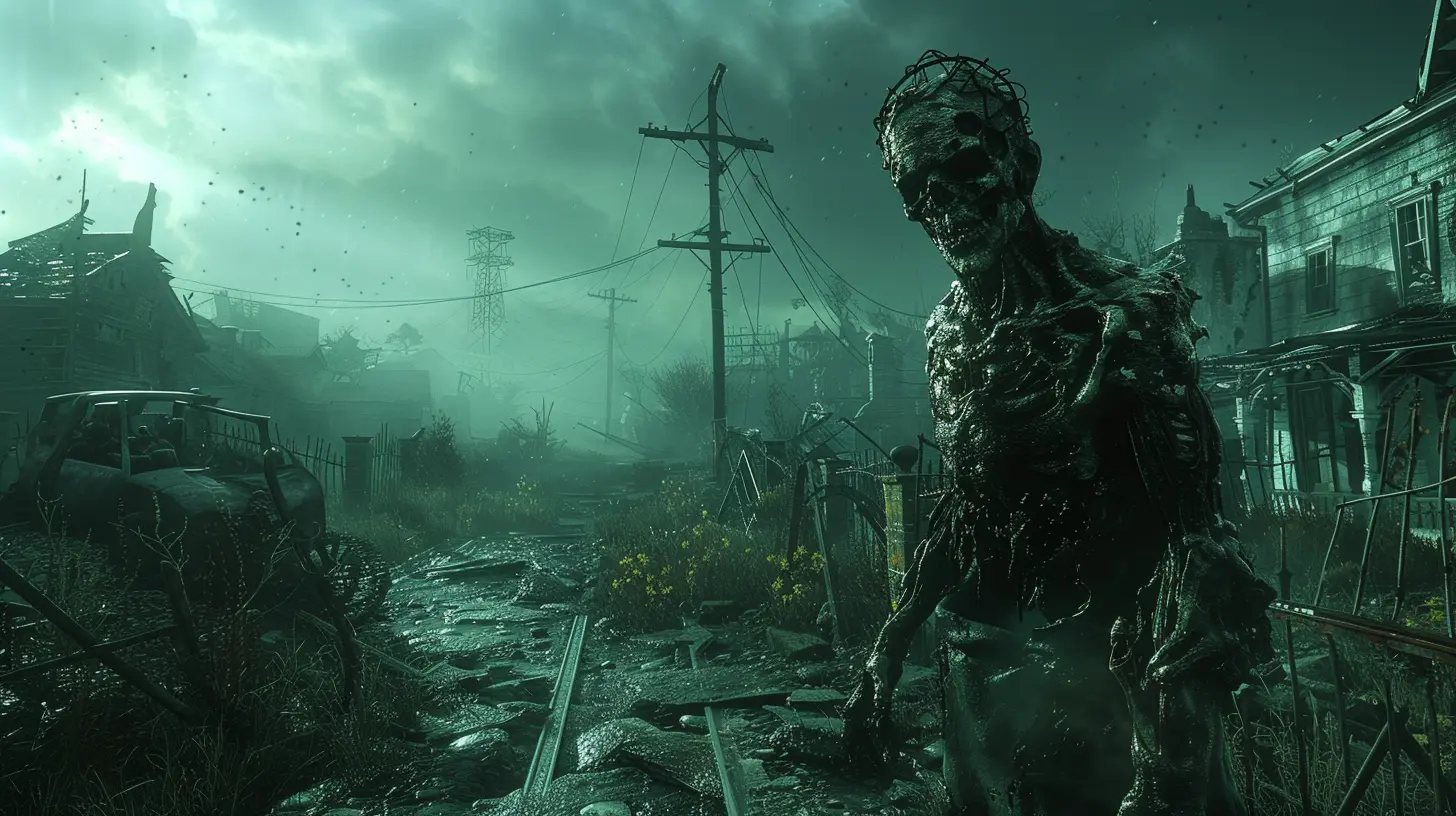
From Mindless Hordes to Complex Foes
Remember when zombies were just shambling, brain-hungry lumps of flesh? They were slow, predictable, and kind of... dumb. Sure, they were terrifying in numbers, but their lack of complexity made them feel like cannon fodder. Not anymore.Modern horror games have completely transformed how zombies behave. Think about The Last of Us and its infamous Clickers. These aren’t your typical groaning corpses. They’re faster, more dangerous, and disturbingly unpredictable. Oh, and that unsettling echolocation mechanic? Pure nightmare fuel. Zombies are no longer simple obstacles; they’re strategic, adaptive adversaries that force you to think on your feet.
Meanwhile, games like Dying Light 2 have taken it a step further by making the time of day matter. By day, zombies might be sluggish, but come nighttime, they mutate into incredibly aggressive and horrifying creatures. It keeps you on edge and turns the undead into dynamic enemies rather than one-note villains.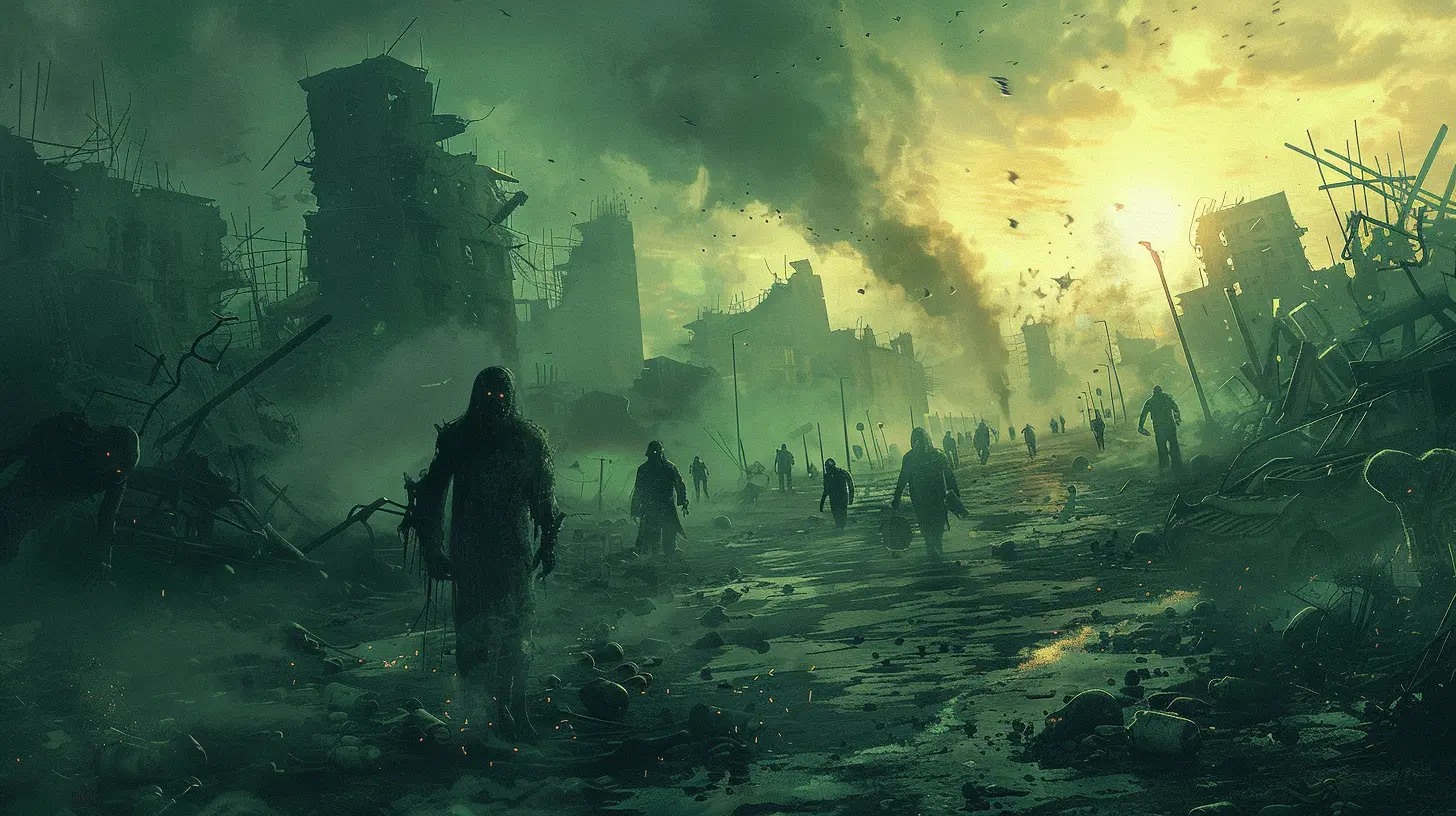
Narratives That Hit Close to Home
Let’s talk about storytelling. Back in the day, zombie games rarely bothered with emotional depth. It was more about saving the day, mowing down infected, and calling it a night. Now, though? Developers are tugging at your heartstrings.Take The Walking Dead series by Telltale Games, for example. Sure, there are zombies everywhere, but the real story? It’s about the people. The relationships. The moral dilemmas. Who do you trust? Who do you sacrifice? It’s more than just surviving the apocalypse—it’s about surviving yourself.
Then there’s The Last of Us Part II, which didn’t just break hearts; it smashed them with a sledgehammer. The game’s portrayal of loss, revenge, and what it means to be human in a broken world elevated zombie storytelling to a place few thought possible. These aren’t just games anymore; they’re emotional rollercoasters that challenge how you see the apocalypse.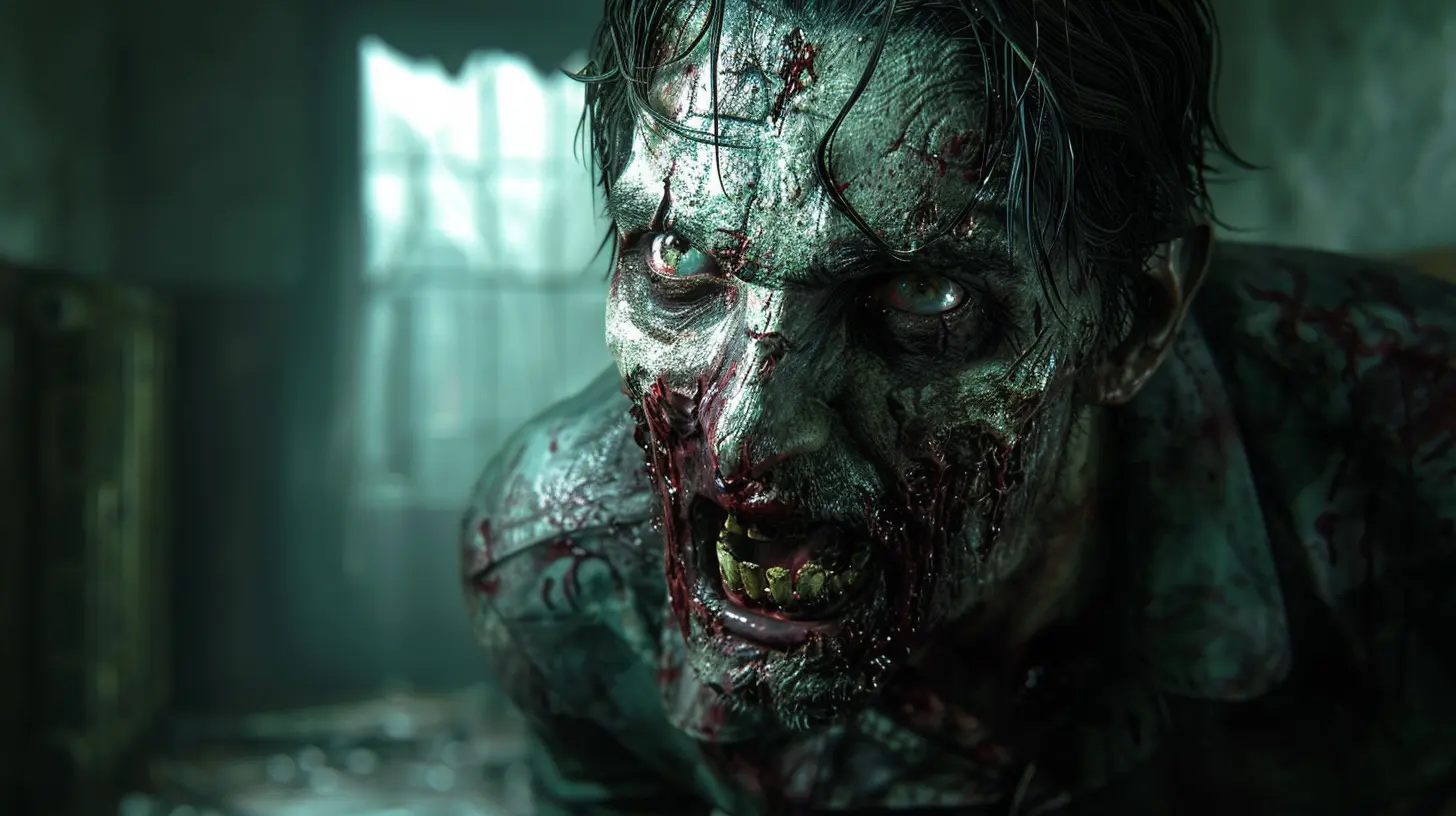
Open Worlds and Player Agency
One word: freedom. Zombie apocalypse games are no longer confined to linear missions or small environments. Developers are handing players the keys to sprawling, open worlds filled with danger, secrets, and, of course, hordes of undead.Games like State of Decay 2 let you build your own survivor community, make tough decisions about who lives and dies, and scavenge for resources in massive, open maps. It’s not just about surviving anymore; it’s about thriving—or at least trying to.
Meanwhile, Days Gone dropped players into a massive, open world filled with jaw-dropping hordes of zombies. I mean, we’re talking hundreds of them on-screen at once, chasing you down like a tidal wave of death. Couple that with a day-night cycle, dynamic weather, and a motorcycle as your lifeline, and you’ve got a game that makes every decision feel crucial. Do you risk scavenging during the day, knowing you might return to camp empty-handed? Or do you brave the night, when the zombies are faster and deadlier? These mechanics make the apocalypse feel alive—ironically enough.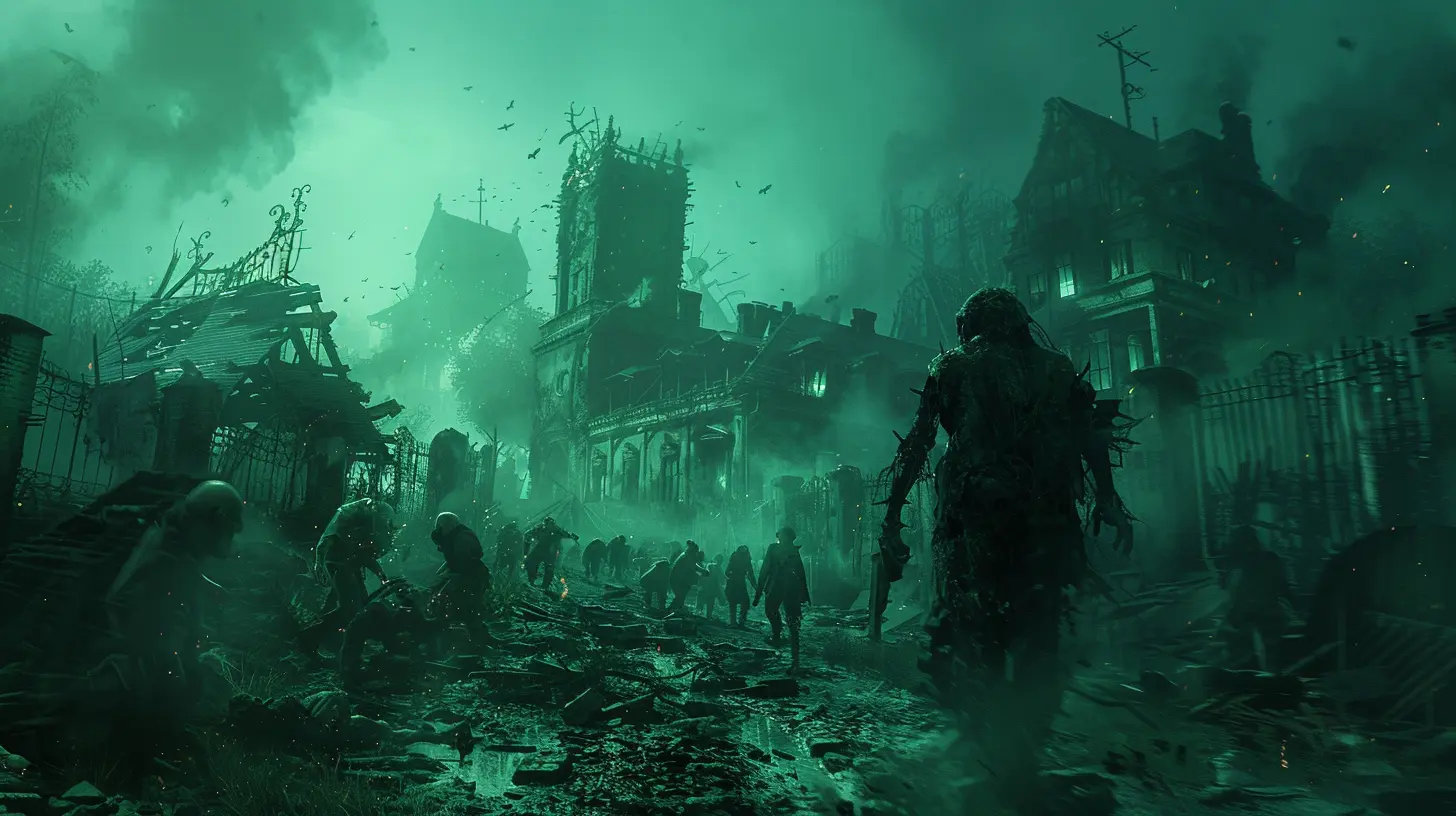
The Evolution of Survival Mechanics
Surviving a zombie apocalypse isn’t just about shooting your way out of trouble anymore. Modern horror games are leaning hard into survival mechanics that make every resource count. Think of it like a game of Tetris, but instead of blocks, you’re managing food, ammo, and medical supplies. Stressful? Sure. But also incredibly immersive.Games like 7 Days to Die emphasize crafting and base-building, pushing players to get creative with their survival strategies. Want to barricade a house and turn it into your personal fortress? Go for it. Prefer setting traps and luring zombies into them? That works too. Survival isn’t just a mechanic—it’s the game.
And then there’s Resident Evil Village, which brought back resource scarcity in a big way. Every bullet, every health kit matters. It’s not about mowing down zombies by the dozen; it’s about making calculated choices. Do you waste precious ammo on one tough enemy, or do you find a way to sneak past them? This kind of tension keeps your heart pounding long after you’ve shut the game off.
Co-op Play (Because Misery Loves Company)
Let’s face it: surviving the zombie apocalypse is 1,000 times better with friends. Horror games have tapped into this big time, delivering some of the most engaging co-op experiences around.Take Left 4 Dead 2. It’s been over a decade since its release, but it’s still considered one of the best zombie co-op games ever made. Why? Because it nails that balance of teamwork, strategy, and sheer panic. When a Tank comes barreling down the hallway, and your friend is already screaming into the mic, you suddenly feel like you’re in the middle of a high-octane horror movie.
More recently, Back 4 Blood picked up the co-op torch, refining the formula with modern mechanics, a card-based progression system, and relentless action. Zombie apocalypse games have figured out that the best way to survive isn’t alone—it’s together. And let’s admit it, there’s nothing more satisfying than yelling at your buddy to "cover you" while you heal yourself mid-horde.
Graphics and Atmosphere: A Creepier Apocalypse
I’d be lying if I said graphics didn’t play a huge role in reinventing zombie apocalypse games. With modern technology, developers can create environments so immersive, you’ll feel like you’re right there, wading through the remains of humanity.Take Resident Evil 2 Remake, for instance. That game is a visual feast (if you’re into gore, that is). The lighting, the shadows, the grotesque details on each zombie—it all comes together to make the game feel horrifyingly real. You’re not just playing a game; you’re living the nightmare.
Then there’s The Callisto Protocol, which took atmosphere to another level. It’s not a zombie game in the traditional sense, but its horrifying enemies and oppressive tone make it feel like one. Every creak, every groan, every flickering light adds to the tension. Modern horror games don’t just show you the apocalypse—they make you feel it.
Zombies with a Twist
Finally, let’s talk about innovation. Developers are no longer content with just "regular" zombies. They’re experimenting, adding twists that keep the genre fresh.Look at World War Z and its swarm mechanics. These zombies climb over each other, forming flesh towers to scale walls and overwhelm defenses. It’s like watching a nature documentary, except instead of ants, it’s the undead.
Or consider Dead Rising, where the zombies are part of the funhouse chaos. Want to duct-tape a chainsaw to a paddle and wade through a crowd of undead? Go for it. These games remind us that the apocalypse doesn’t have to be all doom and gloom—it can be ridiculous and fun.
The Undead Future of Zombie Games
So, where do zombie apocalypse games go from here? If the recent innovation is anything to go by, the future looks promising (and terrifying). With advancements in AI, graphics, and storytelling, we’re bound to see even more creative takes on the undead.Maybe the next big leap will involve even more dynamic zombies that can learn and adapt. Or perhaps we’ll get VR experiences so immersive, you’ll feel the sweat on your brow as you narrowly escape a horde. The possibilities are endless, but one thing’s for sure: we’re not done with zombies, and they’re definitely not done with us.
all images in this post were generated using AI tools
Category:
Horror GamesAuthor:

Greyson McVeigh
Discussion
rate this article
1 comments
Bria Rios
Who knew zombies could get a glow-up? 🎮💀 From groaning walkers to sophisticated brain-munchers, horror games have turned the undead into the life of the party! Let’s raise a glass to more thrilling zombie escapades!
November 8, 2025 at 4:46 AM

Greyson McVeigh
Absolutely! Zombies have evolved from mindless monsters to complex characters, making horror games even more thrilling. Cheers to their glow-up! 🍻💀
